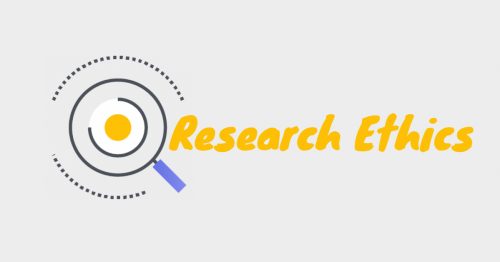
Importance of Ethics in Research
When we think about ethics, the first thing that pops in our mind is the word ‘morals.’ Well, for most of us ethics is what defines the rules for distinguishing between wrong and right. On the other hand, the most common way to define ethics is to recognize it as a norm of conduct that helps differentiate between acceptable and non-acceptable behavior.
The way of pursuing ethics or adhering to its features to practice, people learn them based on their culture, religion, environment and surroundings. Where on one hand, some learn it at school, while others get to learn it at home, church, or any other social setting. Although most of us acquire a sense of right or wrong during our childhood, the concept of moral development occurs all throughout our lives and how we pass time and undergo through different phases of growth as we mature.
Ethics are generally a set of rules, whether written or unwritten, they govern our expectation along with others’ behavior. This set of rules is what defines our expectation and how others behave and why. Coming towards the concept of research ethics, we think of it as problems that arise when research comprises human or animal subjects. Though these issues might be considered important for research ethics, but it is not always the same case for everyone. When it comes to defining research ethics, it is a much larger concept that sets standards of conduct and incorporates aspects like not falsifying work, realizing the importance of publishing findings transparently and not plagiarizing someone else’s work.
Research ethics are a set of norms that guide how scientific and various other research approaches are performed at different research institutes like universities and other colleges.
Importance of Research Ethics
With the help of research ethics, one can promote the aim of its research, like expanding the base for knowledge and information.
It tends to support the required collaborative values for work, including mutual respect and fairness.
The set of norms ensure researchers can be held responsible for their actions. Some of the researchers are supported by public money; therefore, they indulge in activities like misconduct and conflict of interest, which is why it is important to ensure that money is spent appropriately.
Research ethics means that the audience can actually trust your research and its employed method. If you want people to support and fund your research, then your work should make them confident enough to invest in.
Ethical principles
Integrity and honesty
This simply means that the researcher must report his research honestly, with original facts and details in work. They must not try to make up some data or commit anything that could be regarded as trying to mislead anyone. While working with others, the researcher must keep up to any argument and act sincerely.
Objectivity
Being a researcher, you must try to avoid any kind of bias information or fact, which can be in any style, whether a design, some data analysis, interpretation or some kind of peer review.
Carefulness
While compiling your research project, make sure that you take proper care of the project to avoid careless mistakes. In that case, never forget to review your work or critically analyze the result for its credibility. Also, be prepared to share the full result and data in front of your audience.
Confidentiality
If you are given some information that needs to be kept in complete confidence, then respect that scenario and follow the guidelines on the protection of sensitive data like patient records.
Legality
You should be aware of the laws and regulations that are necessary for your work.
So, this was all about the research ethics and its concerning principles that need to be followed while preparing your research. Apart from this, if you ever need help regarding your research projects or papers, feel free to contact our online academic writing services for professional help and guidance.






